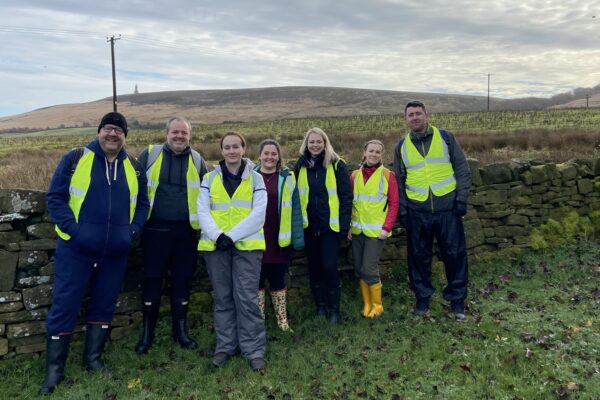
COP26 is almost upon us, which means it’s likely that some UN countries will strengthen their existing sustainability commitments over the coming weeks. If your organisation is serious about sustainability, then why not make your own sustainability pledge before COP26?
You may already have a net-zero goal in place, but setting smaller milestones along the way can help to ensure that you’re continually making progress towards your end goal. Making specific pledges can also help to focus your efforts on the areas in which your business most needs to improve its sustainability.
Here are 5 sustainability pledges your organisation should consider making.
1. Powering all of your operations with renewable energy
On Thursday November 4th, COP26 leaders will be discussing how they can take action to accelerate the global transition to clean energy. Last year, renewable energy sources provided record levels of generation in the UK, with 43% of the nation’s electricity demand met by wind, solar and biogas sources. However, as we begin to electrify more areas that are currently heavily reliant on fossil fuels, demand for electricity is set to increase, which means our renewable generation capacity will need to rise rapidly. If your business is keen to support the transition to a clean energy future too, then you could commit to powering all of your operations with renewable energy by a particular date.
Achieving this goal can take many forms, depending on how your business currently sources its energy. You may simply switch to a renewable energy contract, or you might want to go further by installing renewable on-site generation or by signing a Corporate Power Purchase Agreement (PPA). Head to our procurement page to see how we can support you with renewable contracts and PPAs, or our on-site generation page to find out more about generating your own renewable energy.
2. Reducing your transport emissions
COP26 leaders will also be considering how they can drive the global transition to zero emission transport, which is typically a tricky area for businesses. Last year, many organisations will have seen their transport emissions fall, as traveling to face-to-face meetings was off-limits and working remotely became the new norm. If your organisation is in the process of bringing employees back into the office part- or full-time after a long period of working remotely, now might be a good time to pledge to reduce your transport emissions by a particular percentage, to ensure that they don’t rise back up to pre-pandemic levels.
Achieving this goal will involve reviewing your transportation policies and reducing unnecessary travel. You may also consider electrifying your company vehicles. Read our blog for our 3 top tips on reducing your transport emissions.
3. Investing in carbon insetting
If you have a net-zero or carbon neutral target in place, then you need to have a plan for your residual emissions. It’s unlikely that many businesses will be able to stop creating emissions entirely, no matter how ambitious their decarbonisation actions are, so you will need to find a way to balance out your residual emissions. For years, businesses have been achieving this through carbon offsetting – investing in a carbon reduction project to remove as much carbon from the atmosphere as they need to ‘offset’ their emissions. However, we recommend setting a goal to invest in insetting your emissions instead. With carbon insetting, you work with your suppliers to help them to carry out carbon reduction projects within their organisations, which means you can reduce emissions throughout your supply chain.
Achieving this goal will require you to work closely with your supply chain to identify where your investment could make the most tangible impact. Learn more about carbon insetting here.
4. Closing the gender pay gap
‘Sustainability’ encompasses far more than just environmental concerns – if you want to become a truly sustainable business, you must address how your organisation impacts society in a range of different ways. Gender will be a key focus for COP26 on Tuesday 9th November, as globally, women earn just 68% of what men are paid for the same work on average. Research by the PwC has also shown that the COVID-19 pandemic has disproportionately affected women, which means the gender pay gap is expected to widen by 5% due to the pandemic. If a gender pay gap exists within your business, then closing that gap could be a meaningful milestone for you to work towards on your way to becoming a more sustainable organisation.
Achieving this goal is likely to involve more than simply adjusting salaries. You may also need to adapt your equality and flexible working policies and processes to ensure that men and women have equal opportunities to join your team and grow within your organisation.
5. Become water positive
When it comes to sustainability, businesses can often forget that water is a finite resource – but just 2.5% of the water on our planet is freshwater, and only 1% of it is easily accessible. Across the world, communities are already facing water scarcity, and the Environment Agency has warned that demand for water in the UK could outstrip supply by 2050. Sustainability-conscious companies are already making commitments to reduce the amount of water they use in producing their products and to take steps to address water wastage. Both Microsoft and Ikea have pledged to become ‘water positive’ – providing more freshwater back to the environment than they take from it. If your organisation uses a lot of water, or has yet to address its water usage, this could be a good goal for your business.
Achieving this goal is likely to require a two-pronged approach – reducing your water usage and replenishing water through rainwater harvesting. Our water experts can support you to increase your water efficiency – find out more here.
Sustainability support from our experts
Whether you’re looking to invest in carbon insetting or support the transition to renewable energy, our Net-Zero experts can provide you with guidance and practical support to ensure that your business can achieve its sustainability goals.
To talk to us about how we can help your organisation, call us on 01772 689 250 or email [email protected].










